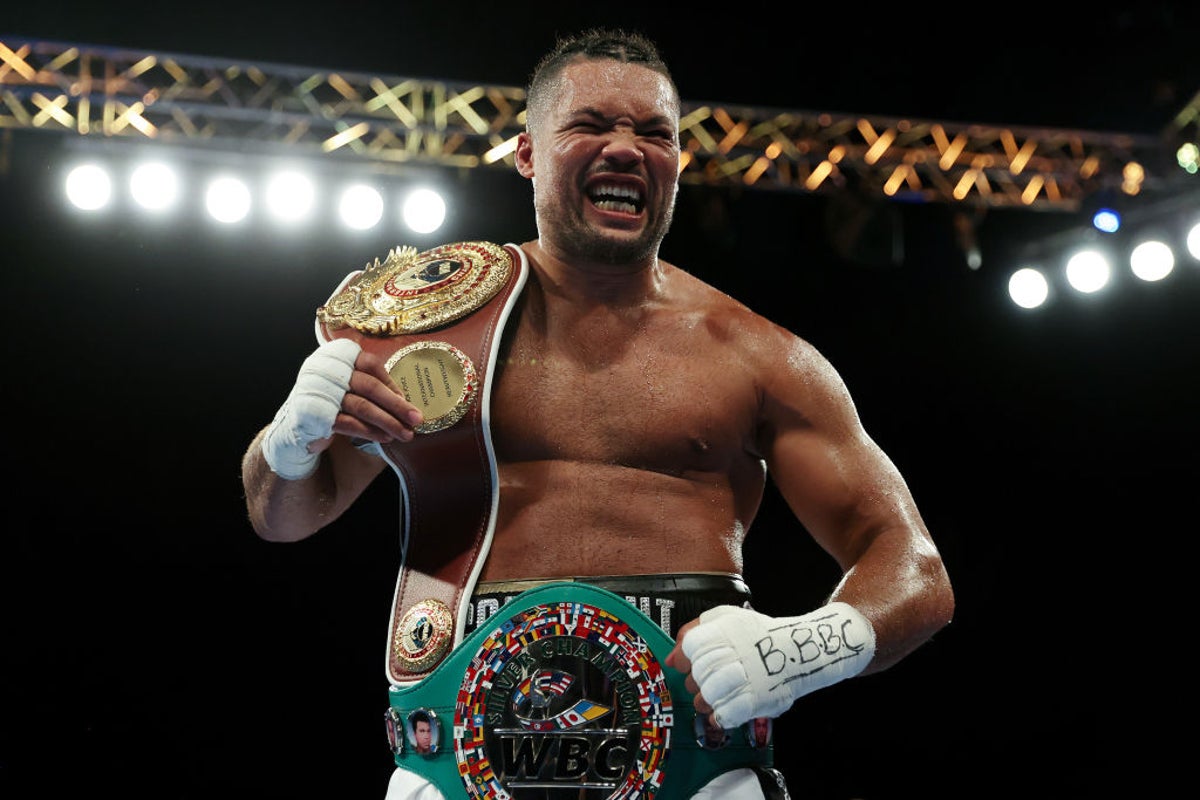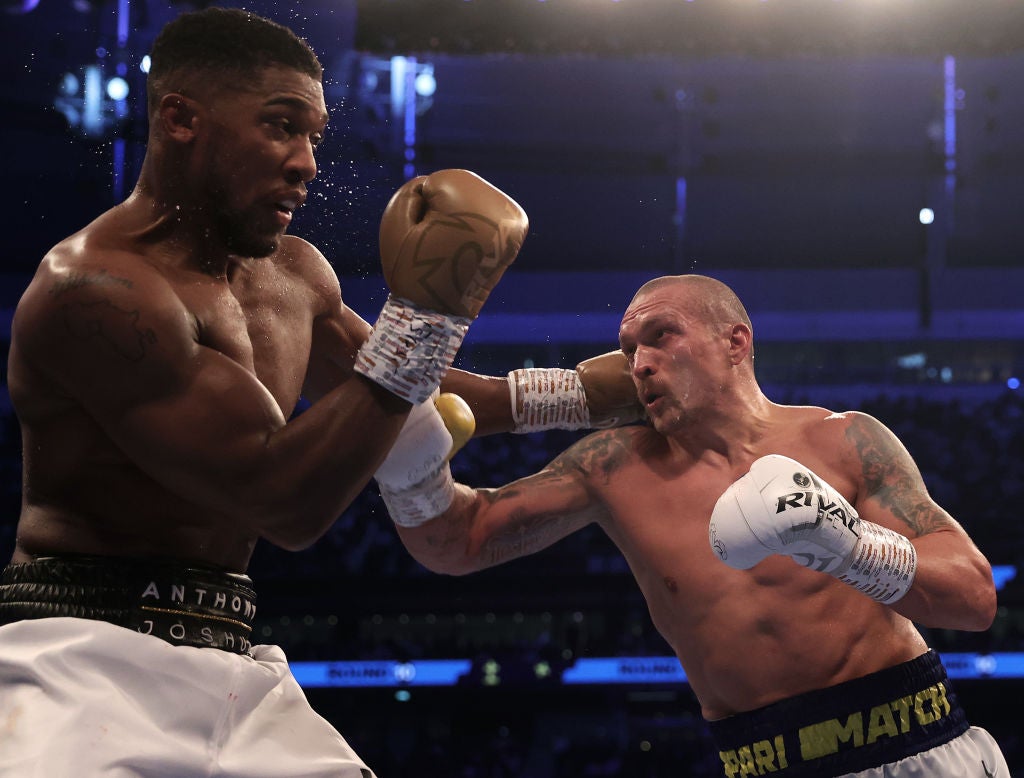
Joe Joyce broke a brave man called Christian Hammer in four painful rounds in the Wembley ring on Saturday night. Hammer never stood a chance.
It was officially stopped after 120 seconds of the fourth round when Hammer tumbled, collapsed and fell to the canvas for the final time. Joyce had probably connected with 30 body shots, crunching blows under Hammer’s elbows or simply straight through his guard. It is not the way heavyweights are meant to end fights. Joyce took no pity on poor Hammer, landing freely even as his opponent was yelping in pain.
Hammer was dropped for the first time at the end of the third, somehow survived the round – but heart and desire are poor defences against Joyce; Hammer was sent down three more times in the fourth to end his night. Joyce was landing with sickening precision to the body and at one point, a heavy right hand seemed to lift Hammer off his feet. Hammer weighs about as much as a dishwasher.
Joyce connected to the head, chin, neck and shoulders often enough to have Hammer unsteady as the body shots landed. It was pulverising at times, reminiscent of a vintage George Foreman from the Seventies.
Back then, Big George was considered a beast, the scariest heavyweight in history. Joyce has Foreman’s nastiness in the ring, but could do with some of the same malevolence on the safe side of the ropes. Joe Joyce, you see, is boxing’s nicest man. Foreman, by the way, was about three inches shorter than Joyce and three or more stone lighter. George was a modern monster, make no mistake.
“The body shots were hurting him; I knew it was only a matter of time,” said Joyce, who mixed in jolting jabs and clubbing right hands on a night when he shook off a year of inactivity with ease. It’s not been an easy two years; Joyce had a wrist injury and is avoided by others.
He is the Olympic silver medal winner from Rio in 2016 and is now unbeaten in 14. He is a heavyweight in a tricky limbo; he is too big a risk and there is certainly not enough reward for beating him. All the heavyweights in the top 10 or 12 fight for money, calculating the risk against the cash. That is Joyce’s dilemma right now; he’s stuck in a boxing twilight zone.
Sure, Hammer lost for the 10th time in 37 fights, but the German-based Romanian is one of a fading breed of dangerous and traditional heavyweight journeymen. He can push and potentially beat most of the fighters outside the top 10 on his night; earlier this year he took a feared and avoided Cuban, Frankie Sanchez, the full 10-round route.
Joyce was under some pressure to get Hammer out of there at Wembley and he delivered.
Hammer, by the way, caught Joyce repeatedly with overhand rights in the first two rounds; Joyce just walked through the punches. Joyce would not take such risks against a proven puncher – he is not a fool.
Joyce is the number one contender for the WBO version of the title, which means that the winner of the Oleksandr Usyk and Anthony Joshua fight on 20 August, in Jeddah, has to fight him.
Well, that’s the way it should work: it seldom does. Once that fight is over, the WBO will make a decision about the length of the negotiations for the winner to meet Joyce; Frank Warren, Joyce’s promoter, admitted that he has started the lobbying on Joyce’s behalf.

However, if Tyson Fury decides to officially unretire, then he could meet the winner of the Saudi Arabian fight. “I would not be against that,” added Warren, who also promotes Fury.
The top of the heavyweight division, which is where Joyce now lives, is a fluid place with a seemingly endless set of options – it is unique to boxing, a business controlled by negotiations and not competition. It has always been an open market of chaos, greed and heartbreak. Joyce, meanwhile, will fight again on 24 September and move a step closer to... something.
On Saturday night, he returned after his short exile in style.
It was brutal at times and was a clear warning to everybody in the heavyweight division: the fighters, the shakers, the fixers and the fans.







